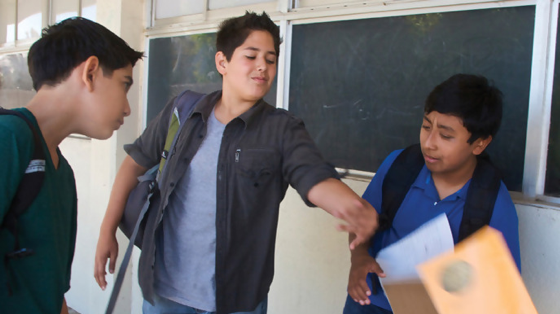
Bullying vs Conflict
Posted in: BullyingOver the years “bullying” has become a powerful word. Parents, teachers and coaches encourage you to come forward if you’re experiencing bullying, but how can you be sure that’s what’s happening? Check out the difference between bullying and conflict to better help you figure out how to move forward.
Being a bystander to bullying or experiencing bullying yourself can be extremely distressing even before having to figure out what to do about it. If you’re feeling uncomfortable about a situation, it’s always best to talk to someone you trust. Can a friend bully another friend? Is it bullying if it only happened once? What if it’s not happening on school grounds? Here are some definitions and differentiations that can help guide you with how to seek help.
The definition of bullying
According to Pacer’s National Bullying Prevention Center, bullying is an intentional behavior that hurts, harms, or humiliates a person, either physically or emotionally, and can happen while at school, in the community, or online…the behavior is typically repeated, though it can be a one-time incident.
The definition of conflict
Pacer writes that a conflict is a disagreement or argument in which both sides express their views. In a conflict, both parties are in equal control and have equal power in the debate. While conflicts can definitely get heated, neither person has the intent to harm or hurt the other.
The difference
Intent, power, and boundaries are what differentiate bullying from an everyday conflict. While you’re going to experience fights and disagreements in your life and you’re bound to have your feelings hurt by someone who says something in the heat of the moment, there’s a line between the severity of the situation. Try to identify what this potential bully’s motives are and if he or she is able to recognize when an argument turns into an imbalance of power.
If you’re unsure and are feeling uneasy, speak up! There are no specific criteria that a situation must meet to be considered bullying. If you or someone you know is feeling like they’re powerless to the aggressor, talk to someone about your concerns. There’s no harm in seeking more guidance.